the weight is over.
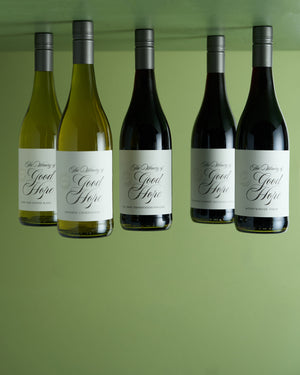
Bottling hope: Radford Dale further commits to sustainability and continued ethical practices throughout the brand’s value chain. Emphasising a philosophy of care. Part of this is sister label, The Winery of Good Hope’s planet-friendly lightweight bottle re-launch.
“This is no mere greenwashing exercise,” asserts founder and co-owner of Radford Dale, Alex Dale on The Winery of Good Hope relaunch this July 2024. The packaging has been overhauled with a focus on sustainability. This includes all recyclable, lightweight bottles, labels, stickers and cardboard boxes, which in turn use both recyclable sealing tape and internal dividers. The design itself conveys this message of ‘weightlessness’ with a clean script floating on a white background.
“We don’t believe we are perfect, however we are making a real effort to embrace all things that are right and not to resist change,” comments Dale. “One can always argue that more can be done. We are very much in that mindset and will, in stages, continue to improve all of our practices.”
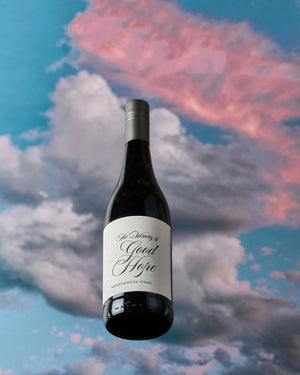
a continuation
While the vintage and packaging may be new, the spirit behind the change of direction certainly isn’t. Long has Radford Dale been implementing sustainability and social upliftment measures across their whole stable. Their community educational programme jumps out as a prime example, the Land of Hope range of wines and the Educational Trust. Established in 2007 the direct and sole beneficiaries of this Trust are the previously disadvantaged individual employees of Radford Dale winery and their children and dependents. Not to mention being well-established members of sustainability bodies, WIETA (Wine Industry Ethical Trade Association) and IPW (Integrated Production of Wine).
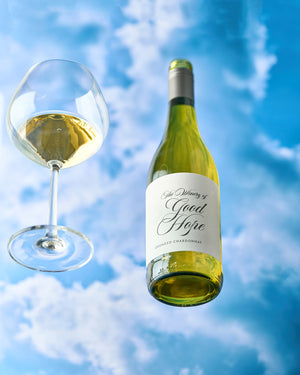
“It’s about taking responsibility”
“This can’t be isolated to a couple of wineries", states Dale. "The whole industry needs to move in the right direction and be mindful of the materials they use. The consumer wants it. For those of us who export, we had better welcome it.”
He advises that wineries need to embrace the process and make the decision to transform how they manage their businesses on every level. “It requires planning, forethought and a shift in mentality – very similar to how we changed from cork to screwcap two decades ago.”
jancis robinson speaks out
It has become increasingly well documented that the manufacture and transportation of glass bottles are the biggest factors contributing to wine’s carbon footprint. Leading wine critic Jancis Robinson has added her significant influence to the debate. She writes in an article for the Financial Times ‘the ideal situation would be that all glass bottles were either reused or recycled because, unlike some materials, glass can be recycled virtually infinitely’.
On the matter she pushes the point that it’s imperative that the wine industry band together to demonstrate that there is no connection between bottle weight and wine quality. The world is taking notice, unnecessarily heavy bottles are fast falling out of fashion.
Robinson also recently reported on a new initiative by high profile retailers operating in Sweden, the U.K and the U.S, which is campaigning to reduce bottle weights. These retailers have signed up to the Sustainable Wine Roundtable Bottle Weight Accord:an agreement to reduce the average weight of the 750-ml still-wine bottles they sell from the current average of approximately 550 g (about 1,300 g for a full bottle) to an average bottle weight below 420 g (1,170 g full) by the end of 2026.
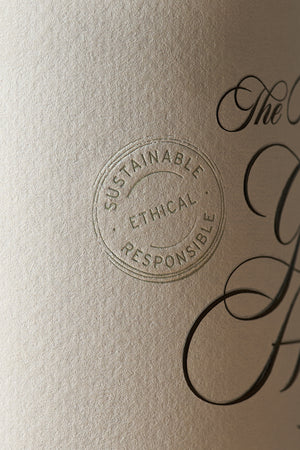
410 grams
The new Winery of Good Hope lightweight bottles comfortably meet this global initiative and weigh in at 410g. “The transition is a process,” explains Dale. “One which we have begun, and are committed to, but have not fully achieved yet. We can only transition as and when we bottle new vintages. So, at launch, most wines will be in lightweight bottles, some in less lightweight. Within 6 months, all will be in the new bottles.”
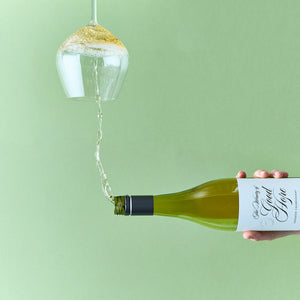
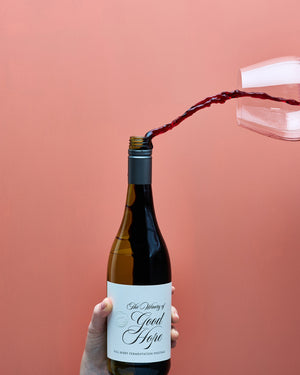
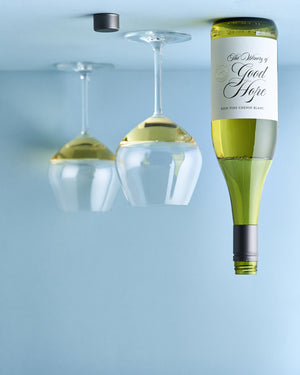
an on-going commitment
While the trimmed down bottles are certainly an exciting development Dale makes the point that it is merely a part of Radford Dale’s on-going commitment to following sustainable practices in the wine industry. This includes organically-certified viticulture for all the vineyards it owns and organically-certified winemaking for all wines made from Radford Dale Organic in Elgin. In the long term they hope to extend that to the Stellenbosch winery too. Sustainability in all things is a thread across the brand, from the choice of packaging materials to the ethics in all business matters as well as in relation to their team members and fair remuneration.
Produced at Radford Dale in Stellenbosch, The Winery of Good Hope wines are billed as ‘extremely approachable, classy and elegant, highly drinkable – and highly affordable.’ Dale emphasises that the wines are made by the ‘same winery, same team, and very often the same vineyards’ as the rest of the Radford Dale tiers.
“We have no desire to make mass-produced wine,” comments Dale. “The Winery of Good Hope are handcrafted, proper wines, which is not customary at this level. It’s important that they reflect the high standard of the house.”
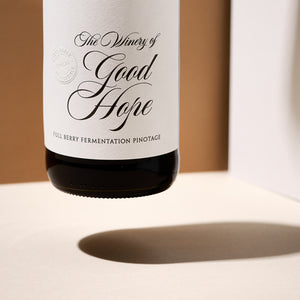
A good example he says is the Full Berry Fermentation Pinotage, where whole berries are gravity fed into the tank for carbonic maceration. “It’s hugely laborious,” admits Dale. “We use hundreds of winch-loads to get the grapes in whole, uncrushed – and we only produce one tank.” Or, the Bush Vine Chenin Blanc, which includes grapes from a stunning, low-yielding 50-year-old block.
Radford Dale is committed to sustainable consumerism. “As a society we’ve been pretty complacent about the environment – and much of what is out there is greenwashing and chest beating. Rather, we need to be authentic. We have a responsibility to ourselves and to our community.
“To become fully sustainable will take time, years, but we must commit to the process and do it. The new packaging for The Winery of Good Hope is an important step. And it will be followed by the phasing-in of lighter packaging across all of our ranges, including our most premium.”
This he says is simply a philosophy of care.
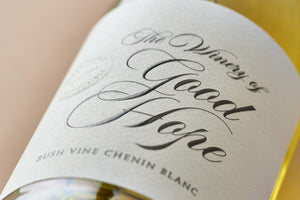
further resources
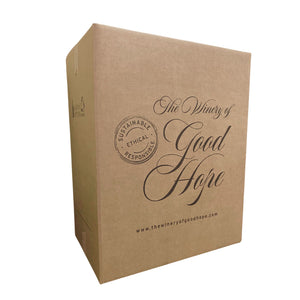
eco packaging
We've commissioned 100% recyclable cardboard boxes, which in turn use both recyclable sealing tape and internal dividers.














